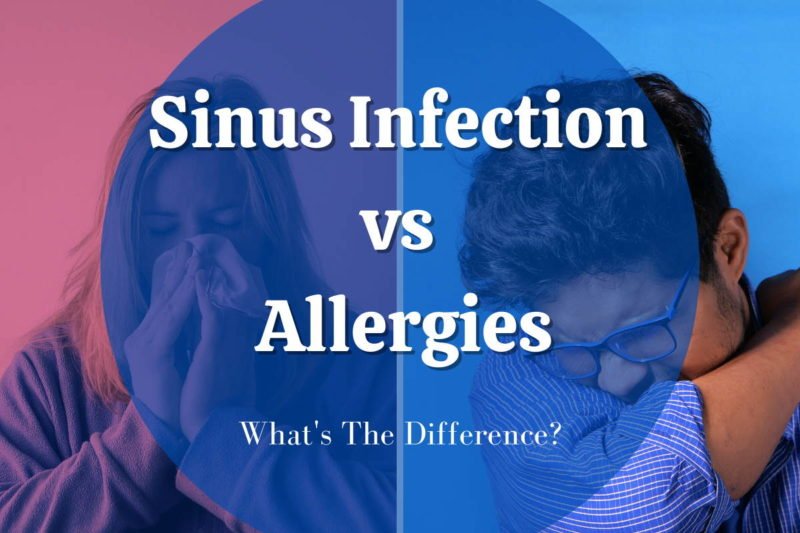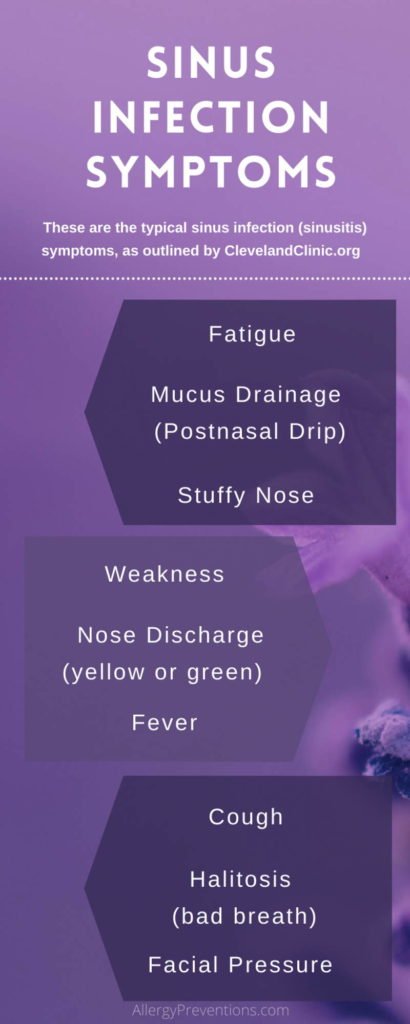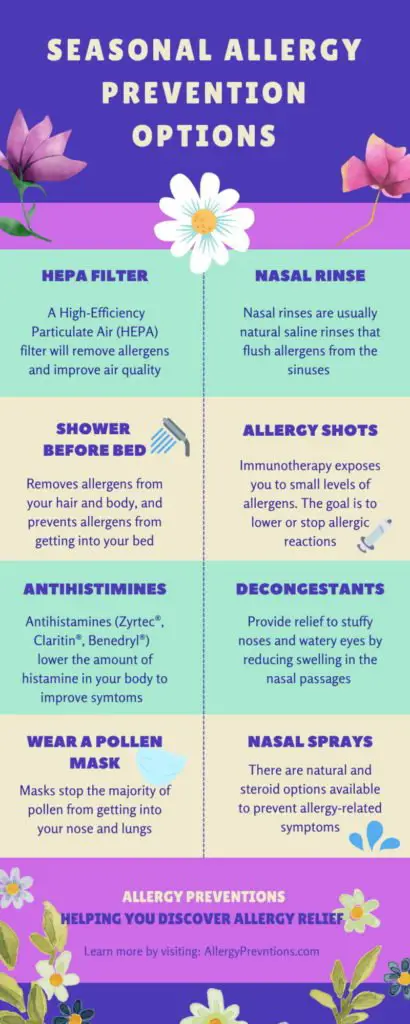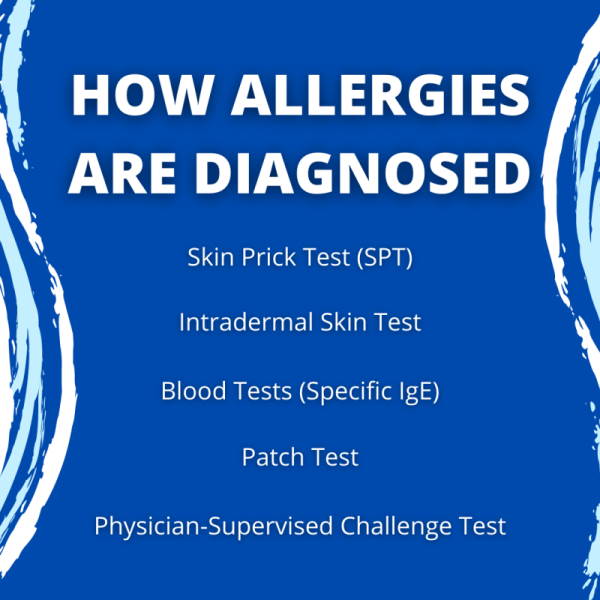You have found yourself with sinus symptoms you cannot ignore, but ask yourself “Are these symptoms from allergies or a sinus infection?” Let’s battle (figuratively) Sinus Infections vs. Allergies, and get educated on the differences, symptoms, treatments, and prevention measures for both conditions.

As an Amazon Associate, I may earn from qualifying purchases.
Table of Contents
Main Differences Between A Sinus Infection and Allergies
Sinus infections also go by the name, “sinusitis”, which is inflammation of your sinuses. The swelling can be acute (short-lived) or chronic (long-lasting).
The CDC explains that germs, viruses, and bacteria thrive and grow when your sinuses are filled with fluid instead of air. The abnormal fluid in the sinus cavity, with the germs, equals a sinus infection.
Allergies, on the other hand, are caused by an immune response to a substance that normally doesn’t bother other people, your immune system is sending out false alarms.
The difference between a sinus infection and allergies, broadly speaking, is a sinus infection is inflammation of your sinuses, whereas allergies are an immune response.
How do you know if it’s a sinus infection or just allergies?
Knowing if you are suffering from sinusitis or allergies is where things get tricky. The best way to know if you are suffering from a sinus infection or allergies is to examine your symptoms, and how long they last. The Cleveland Clinic describes a sinus infection with the following symptoms:

- Fever
- Weakness
- Fatigue
- Cough
- Thick yellow or green discharge from the nose
- Mucus Drainage (Postnasal Drip)
- Stuffy nose
- Facial pressure
- Halitosis (bad breath)
Seasonal Allergy Symptoms
Medline Plus describes allergies with the following symptoms.

- Stuffy Nose
- Itchy Nose/Throat
- Mucus
- Cough
- Wheezing
- Itchy, watery, swollen eyes
- Rash, hives, blisters
Sinus Infection vs Allergies Symptoms
Sinus infections and allergies have similar symptoms, so it can be hard to distinguish between these two conditions. Sinusitis (sinus infection) can cause fever, bad breath, and thick nasal discharge which are not typical symptoms of seasonal allergies.
Seasonal allergies tend to cause itchy eyes, nose throat, and occasionally hives, sinus infections do not usually present these symptoms.
Can sinus infection symptoms come and go?
Yes, sinus infection symptoms can come and go. Acute sinusitis can start to get better, and then come back. A sinus infection that behaves in this manner may be considered a chronic sinus infection (chronic sinusitis) by your healthcare provider.
Can seasonal allergy symptoms come and go?
Yes, absolutely seasonal allergy symptoms can come and go. Seasonal allergy symptoms show up when you are exposed to the allergen. When you remove your allergen exposure, your symptoms will start to go away.
Reintroducing yourself to the allergen will bring your seasonal allergy symptoms right back.
How to Prevent Allergies and Sinus Infections
The most ideal way to handle allergies and sinus infections is to prevent them altogether! I know, easier said than done. Here are a few ways that may help with preventing these health conditions.
Preventing Allergies
To prevent allergies, we need to know what is causing your allergies. Seasonal allergies are usually caused by pet dander, pollen, mold, dust mites, and cockroaches.
Top Seasonal Allergy Prevention Options

Avoiding allergy triggers is the best way to prevent having allergy symptoms.This is not always possible. To assist in avoiding (preventing) seasonal allergy symptoms, consider the following:
- HEPA Air filter – we use this one for our home (WINIX 5500-2 Full Review)
- nasal rinse – Neti-pot
- showering before going to bed (rinse off allergens)
- Allergy Shots (multi-year commitment)
- Antihistamines (Claritin, Zyrtec, Benedryl)
- Decongestants
- Wearing a mask outdoors
- Nasal Steroids (Flonase)
Preventing Sinus Infections
You might not be able to prevent yourself from getting a sinus infection ever again, but knowing what causes sinusitis will assist you in lowering your risk.
Sinus Infection Causes:
- Recently suffered from a cold or illness
- Smoke, or exposure to someone who smokes (secondhand)
- Seasonal Allergies
- Sinus issues (nasal polyps)
- Poor or weakened immune system from illness or medications
Maintaining a healthy lifestyle and avoiding allergens is a great start in preventing sinus infections. Discuss with your doctor the best options for you.
How to Diagnose Allergies

You might be unsure if you have allergies, but you are having symptoms that lead you to believe that you do have allergies. How are allergies diagnosed? Here are ways to diagnose allergies according to AAFA.org
Skin Prick Test (SPT)
Also known as scratch testing. The doctor will prick or scratch the skin, apply a small amount of the allergen, and look for a reaction on the skin.
Intradermal Skin Test
A small amount of a suspected allergen is injected into the skin, similar to the skin prick test. This test is a type of testing usually reserved for suspected medication or venom allergies.
Blood Tests (Specific IgE)
RAST or ImmunoCAP testing Blood tests are not the first go-to for doctors and are used when someone has a skin condition that prevents the other testing methods.
Blood testing measures the number of allergen antibodies in the blood (IgE).
These tests are not very accurate and have a high false-positive rate.
Physician-Supervised Challenge Tests
This test is where you take the medication or eat the suspected allergen food in front of your doctor and they document your reaction.
Patch Test
The patch test involves taking a patch with the suspected allergen on it (i.e. metals, soaps, chemicals), placing a bandage over the patch, and looking for a reaction 2 – 4 days later.
This type of allergy testing is for contact dermatitis, not seasonal allergies.
By talking with your doctor and getting one or more of these tests, you will have a more confident answer in knowing what is causing your allergies.
Diagnosing Sinus Infections
Your physician does the sinus infection diagnosis. The physician will take into account your medical history, medications, and symptoms. The physician will also check your ears, nose, and throat for signs of a sinus infection like blockage and discharge.
Depending on the findings, your doctor might refer you to an ENT specialist.
Treatment Options for Sinusitis (Sinus Infections)
Treatment options for sinus infections vary on the severity as well as the duration of your symptoms. The Cleveland Clinic has posted excellent information on how sinus infections are treated, as I have outlined.
Acute Sinus Infection Treatment Options
- Decongestants
- Over-the-counter medications (cold and allergy)
- Nasal saline irrigation. Like a Neti-Pot
- Hydration/Drinking fluids
Sinus Infection Treatment Options After 10 Days Without Improvement:
- Prescribed antibiotics
- Nasal decongestants
- Prescription intranasal steroid sprays
Chronic Sinus Infection Treatment Options
Your Primary Care Manager may treat the suspected underlying condition if you get Chronic or frequent recurring sinus infections. The underlying condition that usually causes chronic sinusitis is allergies. Here are the top treatment options:
- Intranasal steroid sprays
- Topical antihistamine sprays and/or oral pills
- Leukotriene antagonists (montelukast, zafirlukast and zileuton)
- Rinsing nasal passages (Neti-Pot) routinely
There may be a situation where these treatment options are not enough to control your chronic sinusitis. Therefore, your doctor may order you a CT scan to further examine your sinuses. Additionally, your doctor may refer you to an ENT specialist.
When sinusitis isn’t controlled by one of the above treatments, a CT scan is used to take a better look at your sinuses.
Can an ENT (Ears, Nose, and Throat) Specialist help with my symptoms?
An ENT specialist focuses on the ear, nose, and throat, which includes your sinuses. These experts will do a thorough review of your medical history and perform an exam.
The specialist may order you a CT scan to see what’s going on in your sinus cavity and to look for any abnormalities.
Depending on the results, surgery may be needed to correct structural problems in your sinuses. This is most likely to happen if you have polyps and/or fungal infections. ENT providers are a great resource for chronic sinus infections and allergies. [spacer height=”30px”]
FAQs
I have compiled the frequently asked questions about sinus infections vs allergies, check them out.
Can allergies cause sinus infections?
Yes. Allergies are one of the main causes of sinus infections. Medical professionals tend to use allergy medications in the initial treatment of chronic sinusitis.
Can sinus infections cause allergies?
No. A sinus infection cannot cause allergies. But, there may be allergy-like symptoms with a sinus infection.
Are sinus infections from allergies contagious?
No. Sinus infections that are caused by allergies are not contagious.
Can I have a sinus infection and allergies at the same time?
Yes. You can have a sinus infection and allergies at the same time.
Final Thoughts
There is more than meets the eye when trying to find out if you are suffering from allergies or a sinus infection. I hope this article has helped you out.
Check out these articles as well:
